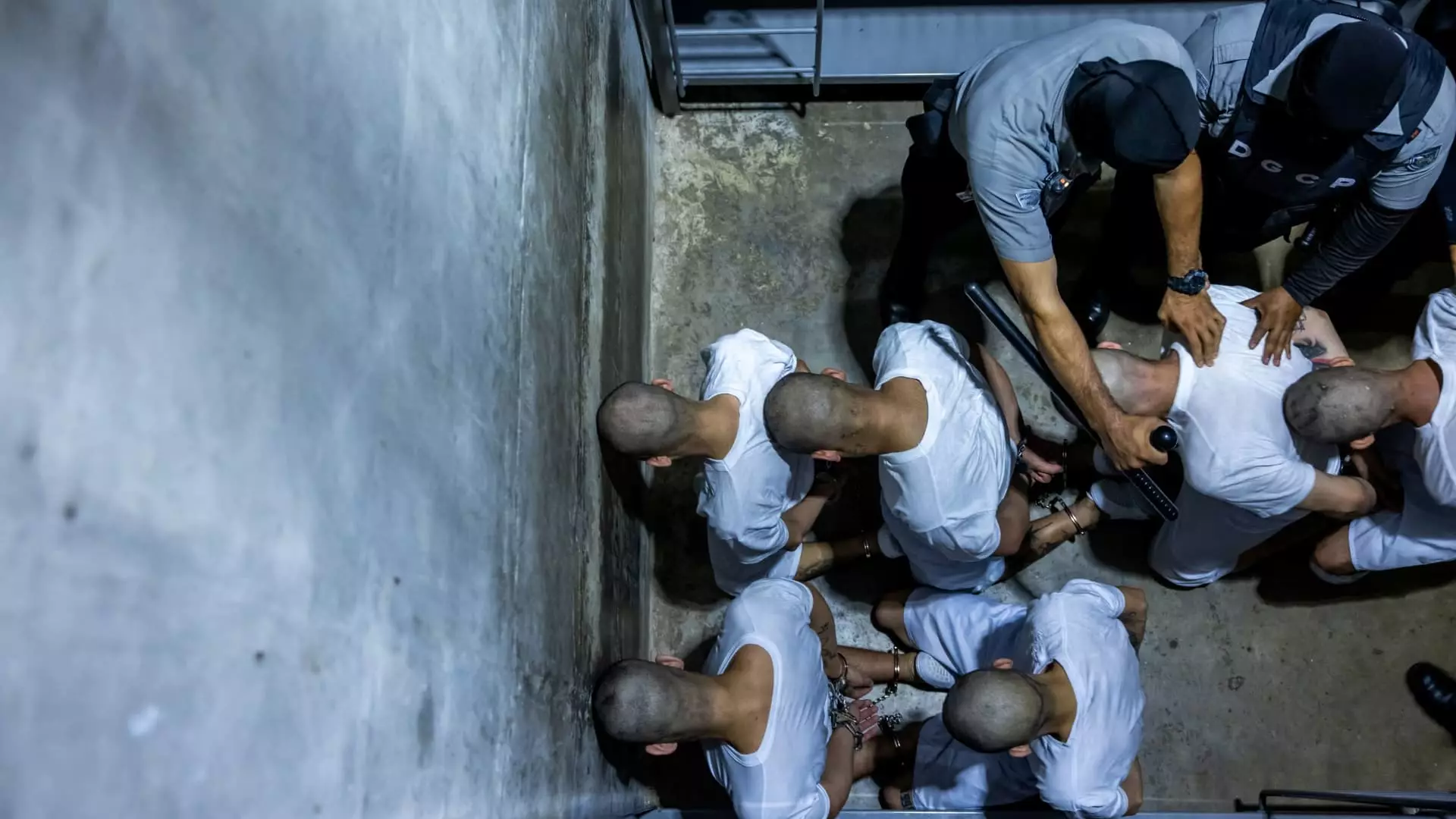The recent decision by Chief Justice John Roberts to temporarily halt the return of Kilmar Abrego Garcia exemplifies a troubling moment in the American justice system, one that reverberates with the echoes of a chaotic administration. Abrego Garcia’s wrongful deportation to a notorious prison in El Salvador is not merely a bureaucratic blunder; it reflects the pervasive flaws and dangers of a system that often sacrifices justice at the altar of political expedience. The Trump administration’s treatment of Abrego Garcia not only reveals a blatant disregard for legal protocols but also raises significant questions about human rights and the consequences of unchecked executive power.
In an age where political agendas clash violently with the principles of democracy, Abrego Garcia’s plight signals more than an isolated incident; it highlights a troubling pattern of abuses that can occur when power is concentrated without oversight. The Justice Department’s emergency appeal, framed as an assertion of authority against a “patently unlawful” ruling, is indicative of a government willing to stretch legal interpretations to undo its own missteps. In this context, the administration’s actions appear less like a commitment to law and order and more a manifestation of desperation to control a narrative spiraling out of their grasp.
The Judicial Response: A Struggle for Control
Judge Paula Xinis’ ruling was not simply a legal formality—it was a powerful rebuke of an executive branch seeking to evade accountability. The insistence by the Justice Department that Abrego Garcia could not be returned is not merely a disagreement over legal interpretation; it is a reflection of a government struggling to confront the consequences of its own decisions. According to the administration, their hands are tied by the chaotic fallout of their actions; however, this sentiment should not be an excuse for sidestepping the rule of law.
What stands out amid this judicial tug-of-war is the sharp criticism from Judge J. Harvie Wilkinson, who derisively stated that “the government screwed up here.” This outcry underscores a significant point: the judiciary is standing as a bulwark against an administration willing to bypass legal constraints. The executive branch’s proclivity for operating in a gray area gets dangerously close to overriding judicial authority, which is pivotal in maintaining a system of checks and balances.
Identity, Persecution, and the Question of Safety
It is imperative to acknowledge not just the legal ramifications of Abrego Garcia’s case, but the human element interwoven into his narrative. Abrego Garcia, who has never been charged with a crime, was wrongfully painted as an MS-13 gang member by the White House. His real story, that of a man striving for a better future as a sheet metal apprentice, deserved acknowledgment rather than vilification. The catastrophic mislabeling of his identity not only undermines his dignity but fuels fear and stigma against immigrant communities.
As an immigration judge had previously ruled that Abrego Garcia faced probable persecution from gangs in El Salvador, it is shocking that the government would risk his life by sending him back to a place where he is likely to face immense danger. This situation tragically illustrates how bureaucracy and harsh immigration policies can dehumanize individuals, stripping them of their rights and reducing their identities to mere data points in a political calculation.
The Broader Context of Immigration Policy
Abrego Garcia’s case cannot be viewed as an isolated incident; it is symptomatic of broader issues engulfing America’s immigration policy. The continual push for aggressive deportations under the guise of safety and national security has created a culture of fear where being erroneously branded a criminal can upend lives. This not only emboldens a narrative of xenophobia but effectively dismantles the trust that the immigrant community places in a system that should be offering refuge rather than persecution.
With the Trump administration’s intention to resume deportations of Venezuelan migrants accused of gang affiliations, the implications are chilling. This policy does not only threaten the safety of those accused but also further exacerbates the situation on the ground in El Salvador. The potential for violence, persecution, and unrest looms large as these policies take effect, signaling an urgent need for a reevaluation of the human impact of migration laws.
As we navigate through this tumultuous landscape, it is critical to remember that justice must be served to uphold the dignity of every individual, regardless of their status. Abrego Garcia’s story is a poignant reminder that at the core of immigration reform should lie a commitment to humanity and the rule of law.

Leave a Reply